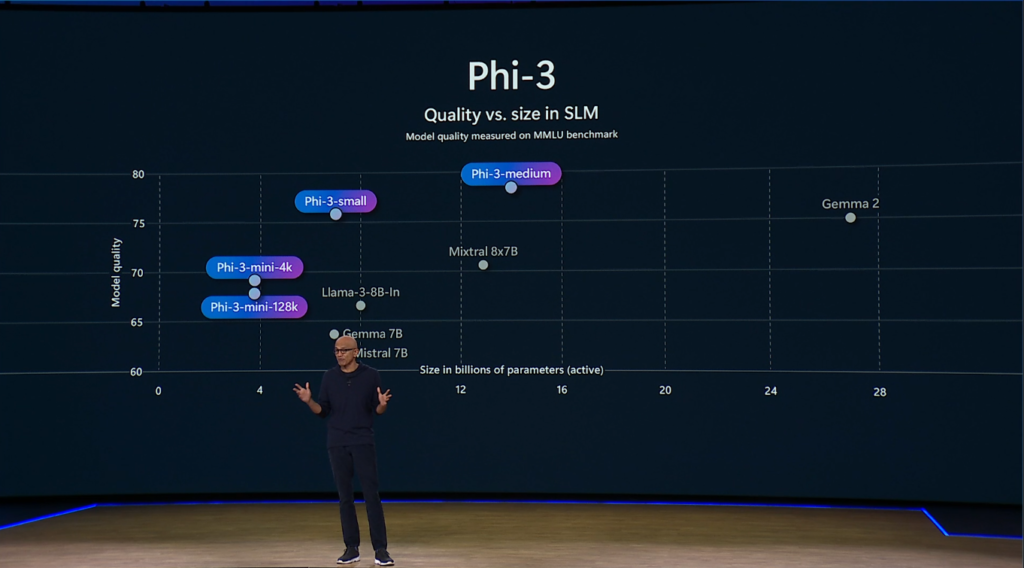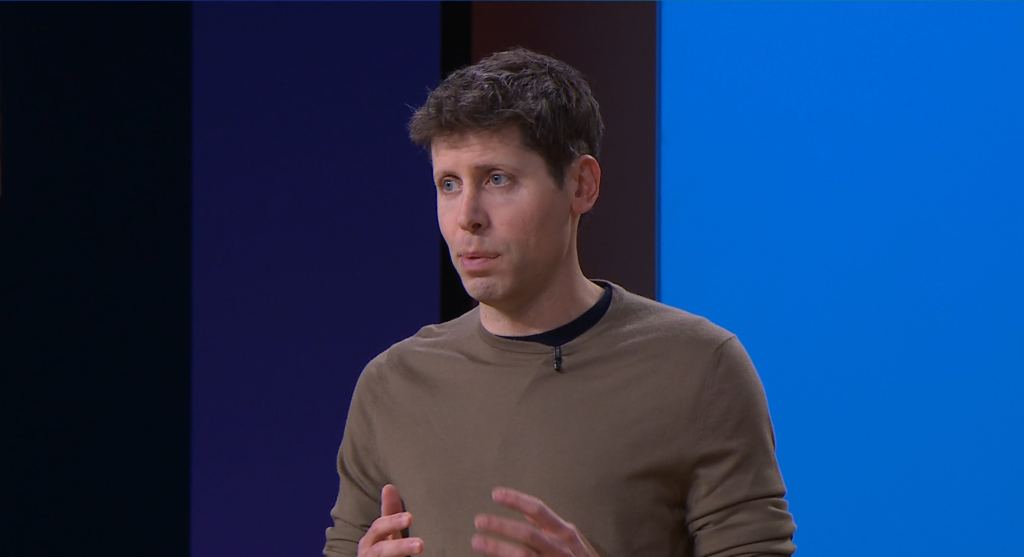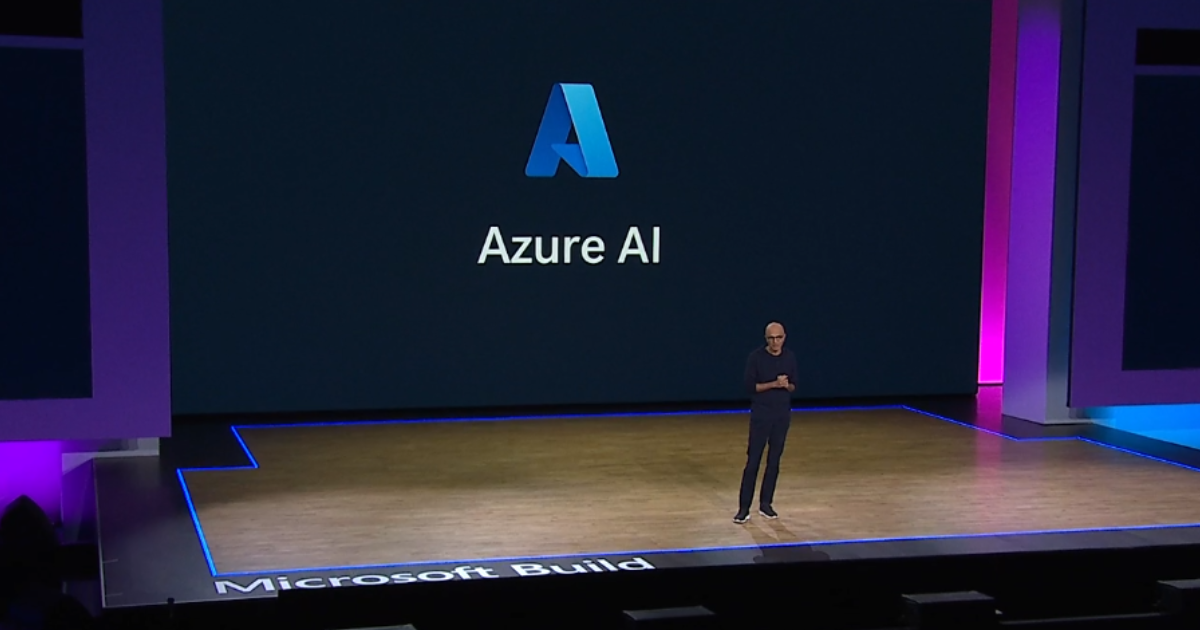Key takeaways:
- Microsoft announced that its Azure AI Studio with GPT-4o is now generally available, raising the game for rival cloud providers. CEO Satya Nadella noted AI costs are coming down fast.
- The software giant also unveiled new Phi-3 small language models, including one for vision. It announced a partnership as well with Cognition, the maker of Devin, an AI software engineer.
- OpenAI CEO Sam Altman said AI models will only get smarter and more generally capable. He urged developers to seize this pivotal moment in tech history to go forward with their AI plans.
Microsoft kicked off its 3-day Build developer conference today with big news: Azure AI Studio, with access to OpenAI’s GPT-4o API, is now generally available (GA) to anyone after being in preview since last November.
That means developers using Azure AI Studio can call the GPT-4o API to incorporate its astoundingly human-like features into their own apps. GPT-4o has the same capabilities of GPT-4 but has been reworked to be natively multimodal. This allows for real-time conversations, which can interact with images, audio and video.
For example, in a Microsoft video, a GPT-4o-enabled chatbot on a shopping site audibly conversed with a consumer to help him decide which shoes for camping to buy – and even put a pair in the shopping cart for checkout. The chatbot can even switch to Spanish when the customer suddenly spoke it.
Microsoft CEO Satya Nadella said costs are falling for AI – a sticking point for many enterprise clients. Since the launch of OpenAI’s GPT-4 in March 2023 until GPT-4o, “it’s 12x cheaper and six times faster.”
“That’s the progress you can continue to see,” he added.
The GPT-4o API availability adds even more muscle to Microsoft’s AI development tool offerings, a category that has been red hot. Amazon has Bedrock and there is Vertex AI Studio from Google, as well as ones from various startups and open source projects. But Microsoft has had the advantage of being an early backer of OpenAI, which remains the leader in the generative AI market. Of course, Microsoft also has been focused on making its own platform amenable for the enterprise, such as with capabilities for security, privacy, governance and compliance.
Microsoft will soon launch other models on its platform, such as from Cohere, Stability AI and NTT Data.
However, do not confuse Azure AI Studio with Copilot Studio. Copilot Studio is a no-code/low-code system for developing AI apps, also owned by Microsoft. Azure AI Studio, on the other hand, is focused on seasoned developers where they can fine-tune models, use RAG (retrieval augmented generation), spin up agents and manage orchestration.
New Phi-3 SLMs and Devin
Microsoft also unveiled an upgrade to its Phi-3 family of small language models (SLMs). This includes a new multimodal model for vision, which has 4.2 billion parameters and can see and analyze images, Phi-3 Small (7 billion parameters) and Phi-3 Medium (14 billion parameters) models.
SLMs have proven popular for enterprises. They can be deployed at the edge, take much less energy and resources, and can be easier to customize.

Microsoft also announced that Devin, from Cognition, will be available on Azure as well. Devin took the developer world by storm when it debuted in March for its ability to act as an AI software engineer.
In addition, Microsoft bolstered its Models-as-a-Service (MaaS) system. This lets developers subscribe to AI models without paying for pricey infrastructure. For the Azure AI Studio, the models added to the MaaS platform include TimeGen-1 and Core42 JAIS. It already has models like Llama 2 and Mistral-7B.
Besides new models, Azure AI Studio now has various helpful dev tools. These help with data integration and orchestration. There are also systems for prompt engineering, debugging, model benchmarking and monitoring of AI apps.
Sam Altman shows up
As jaw-dropping as GPT-4o is, AI models will get even smarter with even more robust general capability, said OpenAI CEO Sam Altman, who was a surprise guest at the conference.
“This is probably the most exciting time to be building a product, doing a startup, (or) whatever it is, that we have seen since at least the mobile boom, and probably I would say since the internet and maybe even bigger than that. … This looks like it’s really, truly a platform shift.”
His advice to developers who are perhaps getting overwhelmed by the fast pace of AI advances? “This is a special time; take advantage of it,” he said. “This is not the time to delay what you were planning to do or wait for the next thing.”


